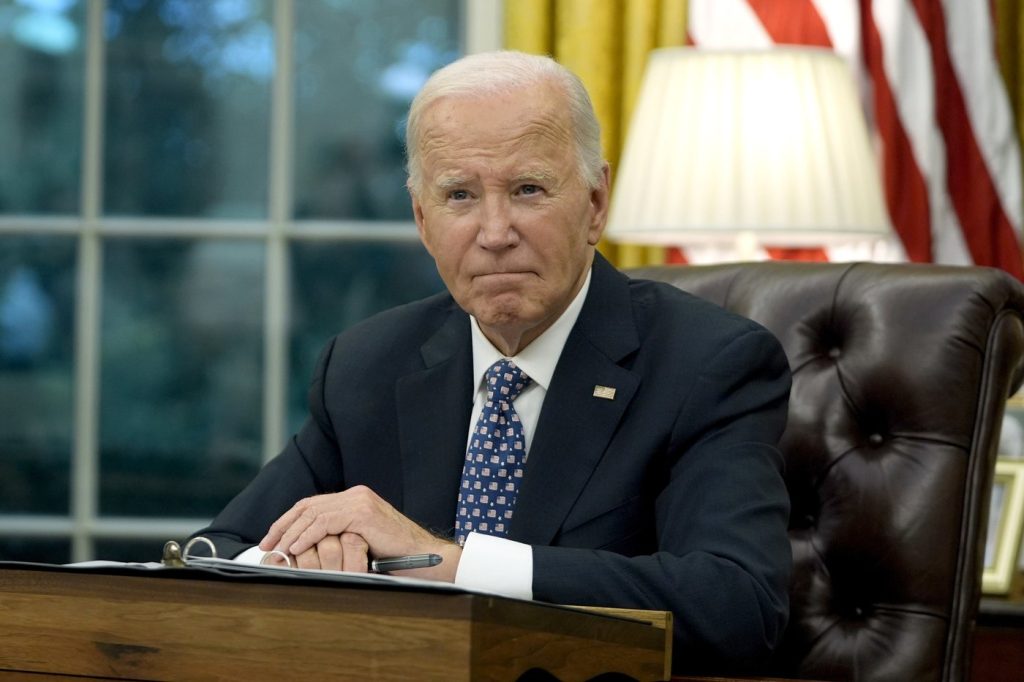In recent statements from the Oval Office, President Donald Trump escalated his criticisms of President Joe Biden, alleging without evidence that the use of an autopen to sign official documents undermines Biden's presidency. Trump claimed that "essentially whoever used the autopen was the president," implying that aides may have acted independently in signing legislation and pardons, which he characterized as "the biggest scandal" in years.
Historically, the use of autopen has been acknowledged by the Justice Department across both Democratic and Republican administrations as a legitimate method for presidents to sign legislation and issue pardons. Trump, however, provided no evidence to support his claims that Biden was unaware of actions taken in his name, despite the U.S. Constitution granting the president absolute pardon power. Biden firmly countered Trump's allegations, asserting in a statement: "Let me be clear: I made the decisions during my presidency. I made the decisions about the pardons, executive orders, legislation, and proclamations. Any suggestion that I didn’t is ridiculous and false."
Trump’s focus on Biden intensified following an executive order directing his administration to investigate Biden's use of the autopen. This directive marks an increased effort to discredit Biden's actions, potentially influencing Republican arguments about the legitimacy of Biden's presidential decisions. The former president referred to this inquiry as "one of the most dangerous and concerning scandals in American history," emphasizing his belief that the public was kept in the dark about who truly wielded executive power.
Amidst Trump's accusations, he directed Attorney General Pam Bondi and White House counsel David Warrington to oversee the investigation, raising questions about the legal ramifications of this initiative. It reflects a continued obsession with Biden, stemming from the 2020 election that Trump claims was rigged against him—a narrative he has maintained despite losing the presidency.
Trump's claims about Biden's pardons, particularly those granted to family members just before he left office, fueled his narrative that aides were bypassing presidential authority. The recipients of Biden's pardons also included individuals tied to the congressional investigation concerning the January 6, 2021, Capitol riot. Trump's pattern of urging investigations against political opponents includes figures who have publicly contradicted his claims regarding the alleged election theft, such as Chris Krebs and Miles Taylor.
On another front, House Oversight Chairman James Comer, a Republican from Kentucky, requested interviews with several former Biden aides, alleging they were involved in a "cover-up" concerning Biden's cognitive abilities and decision-making. Comer named five senior advisors, asserting that they needed to provide truthfulness regarding President Biden’s operational state in the White House. He warned that subpoenas would be issued if these aides did not comply with the request for voluntary interviews.
Comer stated, "I think that people will start coming in the next two weeks," indicating the Oversight Committee's anticipation of forthcoming testimonies. He also promised transparency in the committee's findings by highlighting plans to release the transcribed interviews to the public.
In reaction to the unfolding situation, some Democrats have dismissed these Republican efforts as distractions. Rep. Jamie Raskin, a Maryland Democrat and former ranking member of the Oversight Committee, pointed out the previous lack of success in efforts to impeach Biden, urging Comer to abandon what he described as a "spent dream."
Overall, the ongoing dynamic reflects the broader political tensions between Trump and Biden, marked by allegations, investigations, and a continuous struggle for legitimacy within U.S. political discourse.











